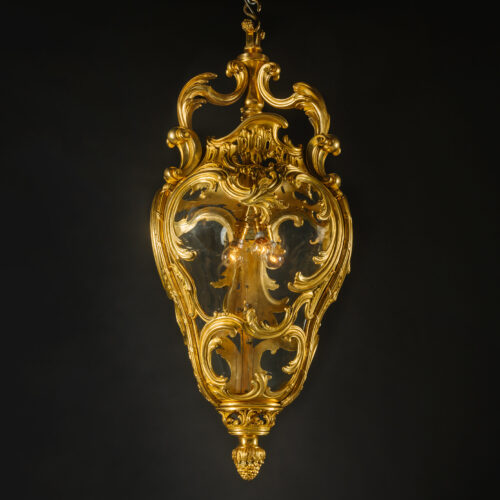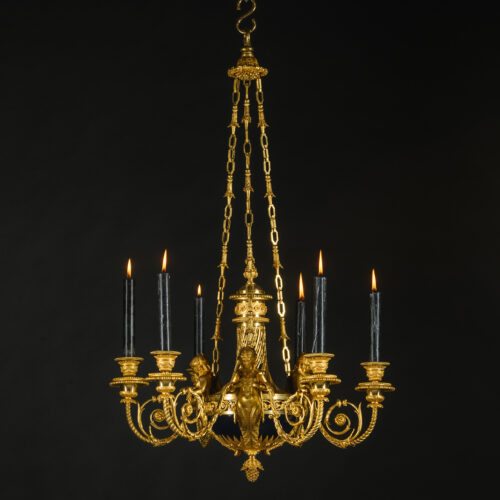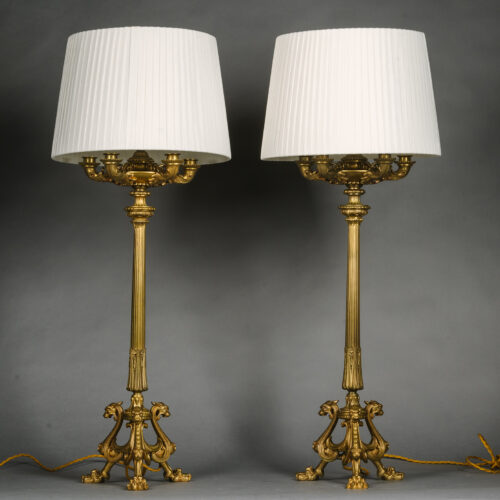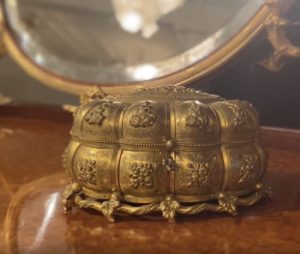Madison Colby
A Pair Of White Marble Portrait Roundels Of ‘Morning’ and ‘Evening’
£38,000
A Pair Of White Marble Portrait Roundels Of Female Portraits Representing 'Morning' and 'Evening', By Madison Colby (American, 1842-1871). White statuary...
Dimensions
Height: 63 cm (25 in)Width: 63 cm (25 in)
Depth: 13 cm (6 in)
Description
A Pair Of White Marble Portrait Roundels Of Female Portraits Representing ‘Morning’ and ‘Evening’, By Madison Colby (American, 1842-1871).
White statuary marble.
‘Morning’ signed ’M. Colby’.
Italy, Circa 1868These large portrait roundels representing ‘Morning’ and ‘Evening’ are expertly carved in Carrara marble by the American neoclassical sculptor Madison Colby, whose career was cut tragically short by his premature death at the age of 29.
By 1867, Madison Colby was working in Florence and was certainly known to the famous American neoclassicist sculptor Hirmam Powers. It is probable that these roundels were executed in Florence. Colby returned to the USA in 1869 to exhibit his sculpture, and moved to San Francisco where his roundels representing ‘Morning’ and ‘Evening’ were exhibited at the Snow & Roos Gallery and Currier & Winter picture store, alongside other works entitled ‘Loves Dream’ and ‘Childhood’.
‘Mr. Colby, a young sculptor, has on exhibition at Currier & Winter’s, a small collection of marbles executed in bas-relief. They are remarkable for delicacy of finish and pure and clearly-defined conception, with, perhaps, but little originality. “Morning” and “Evening”, companion pieces, are of course female heads. The face of “Morning” is characterised by an eager, uplifted look, and has a delicate spirituelle contour; the head is gracefully posed upon the strong, beautiful throat, such as now, alas, is known only in the company of the gods. The floating hair ripples away from the forehead and falls in wavy masses behind the rounded shoulders; her beautiful hands are overflowing with fresh roses. The face of “Evening” is more voluptuous and in its outlines and introspection is vaguely delineated in its quieter expression.’
(Hilda Roosevelt”, Art Review, January 1871. “Hilda Roosevelt” was the nom-de-plume of the author and art critic Harriett “Hattie” L. Van Dolson (1841-1918), who was a close friend to Bret Harte, of whom Colby would sculpt a portrait bust in 1871).
We are grateful to Steven D. Branting, Institutional Historian , Lewis-Clark State College, Lewiston, Idaho, for his research which informs this expertise with reference to another pair of roundels of ‘Morning’ and ‘Evening’ signed ‘M. Colby. Sculpt.’ which were discovered at the Lewiston National Bank, in 1965.
Approximate Dimensions:
Diameter of Roundels : 45 cm 18 inches
Weight of Roundels: 23 kg 50.7058 lbs
Height of Frame : 63 cm 25 inches
Width of Frame : 63 cm 25 inches
Depth of Frame: 13 cm 5 inches
Weight of Frame : 13 kg
Total Weight: 36 kg
Date
Circa 1868
Origin
Italy
Medium
Carrara Marble
Signature
Morning signed ’M. Colby’.
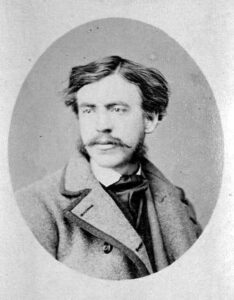
Born of New Hampshire stock in April 1841, Madison Colby enlisted with the 21st Massachusetts Infantry in July 1861, fighting at Antietam. He was critically wounded at Fredericksburg in December 1862 and spent many months in military hospitals in Washington, D.C., and Portsmouth, Rhode Island. After demobbing in 1864, Colby returned to Boston and advertised himself as a portrait painter and sculptor.
By 1867, he was working with fellow American sculptors Thomas Ball, Hiram Powers, and Larkin Mead in Florence, Italy, returning to Boston in early 1869. He married in October that year and for health reasons immediately embarked for San Francisco, where he set up his studio in the Mercantile Library Building.
In November 1869, the Snow & Roos Gallery, San Francisco, exhibited two works by Colby ̶ “Morning” and “Evening, of which the critic Hilda Rosevelt wrote that “they are remarkable for delicacy of finish and pure and clearly-defined conception.”
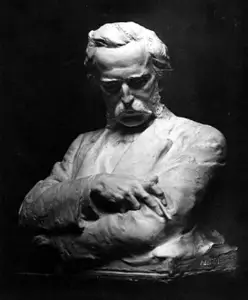
Marble Bust of Bret Harte by Madison Colby 1871
In 1871 Colby turned his attention to a bust of California author Bret Harte, which was described as “one of the best portraits we have ever seen in sculpture.” The editor of The Art Review (January 1871) continued by saying, “Colby has, in this work, cut, in deep letters, upon the obdurate, adamantine rock of fame, his own name at an equal altitude with that of any American sculptor.
Colby was dying from tuberculosis by the time the Harte bust was completed. He succumbed on 17 February 1871 in Oakland. A letter to The Art Review (May 1871) read in part: “Poor Colby has left a widow without anything save the honour of being the relict [sic] of one so rich in genius and gifts which availed him nothing because of his ill health.”
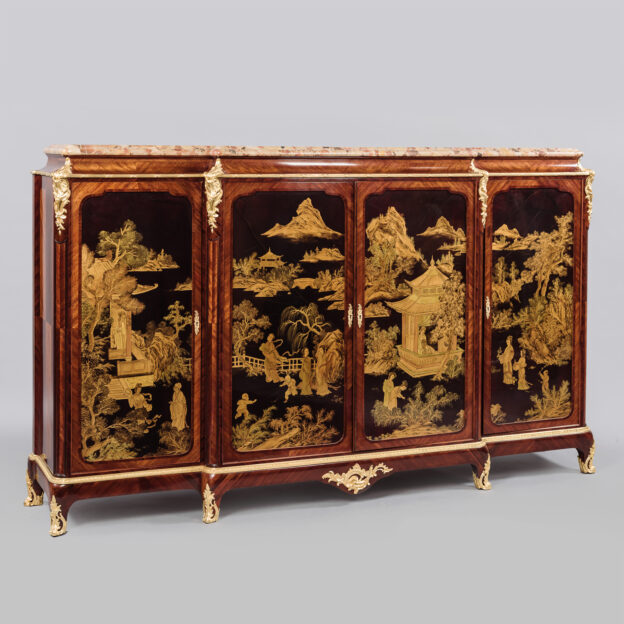
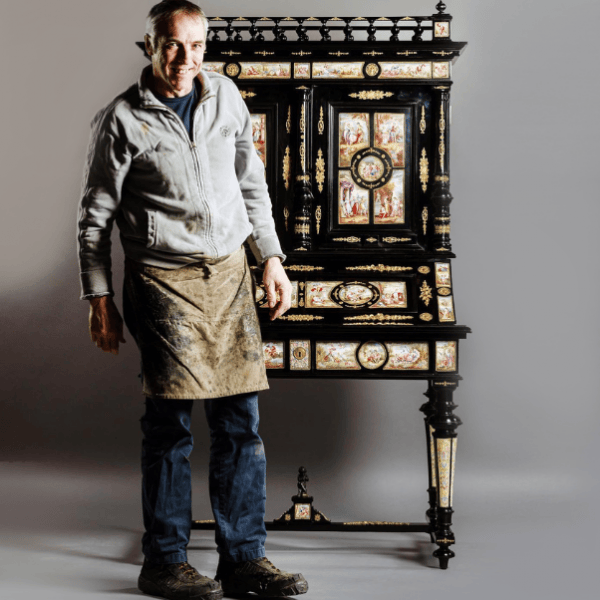
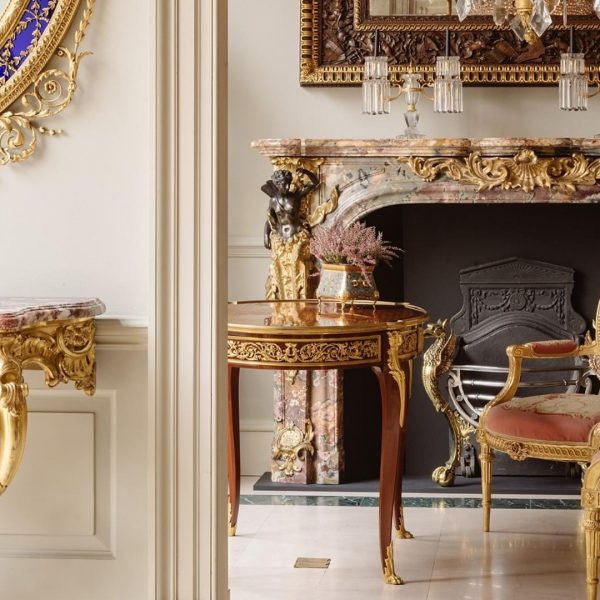
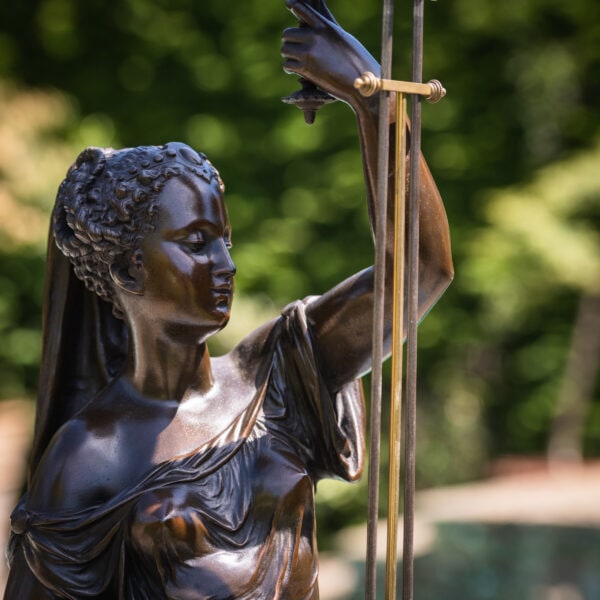
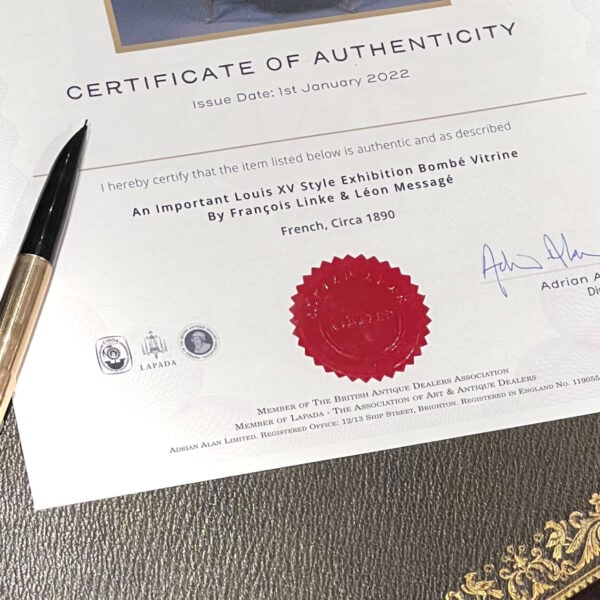
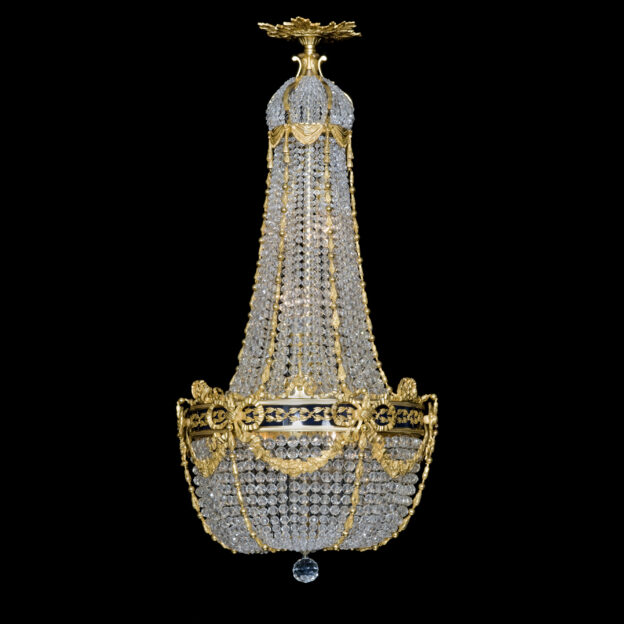

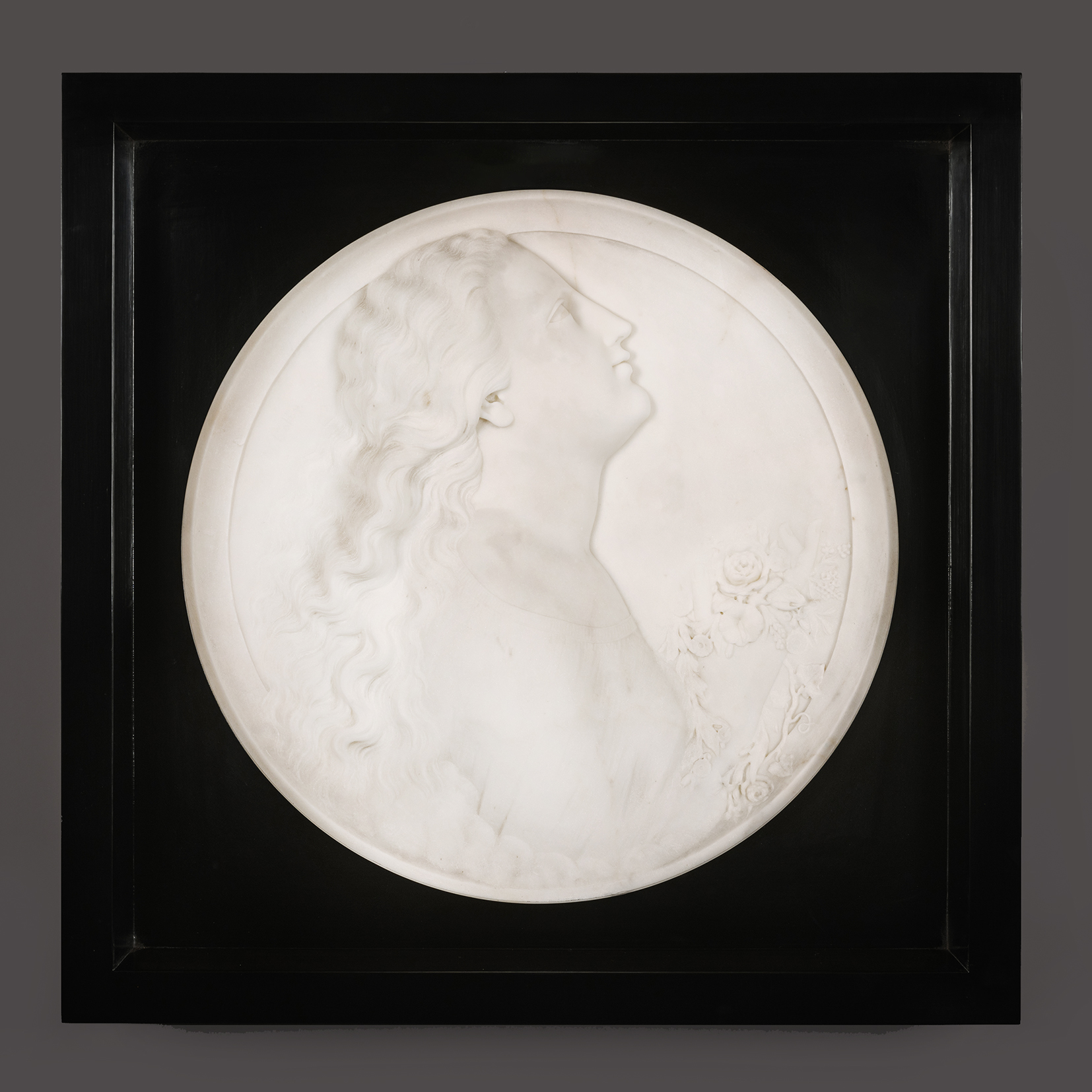
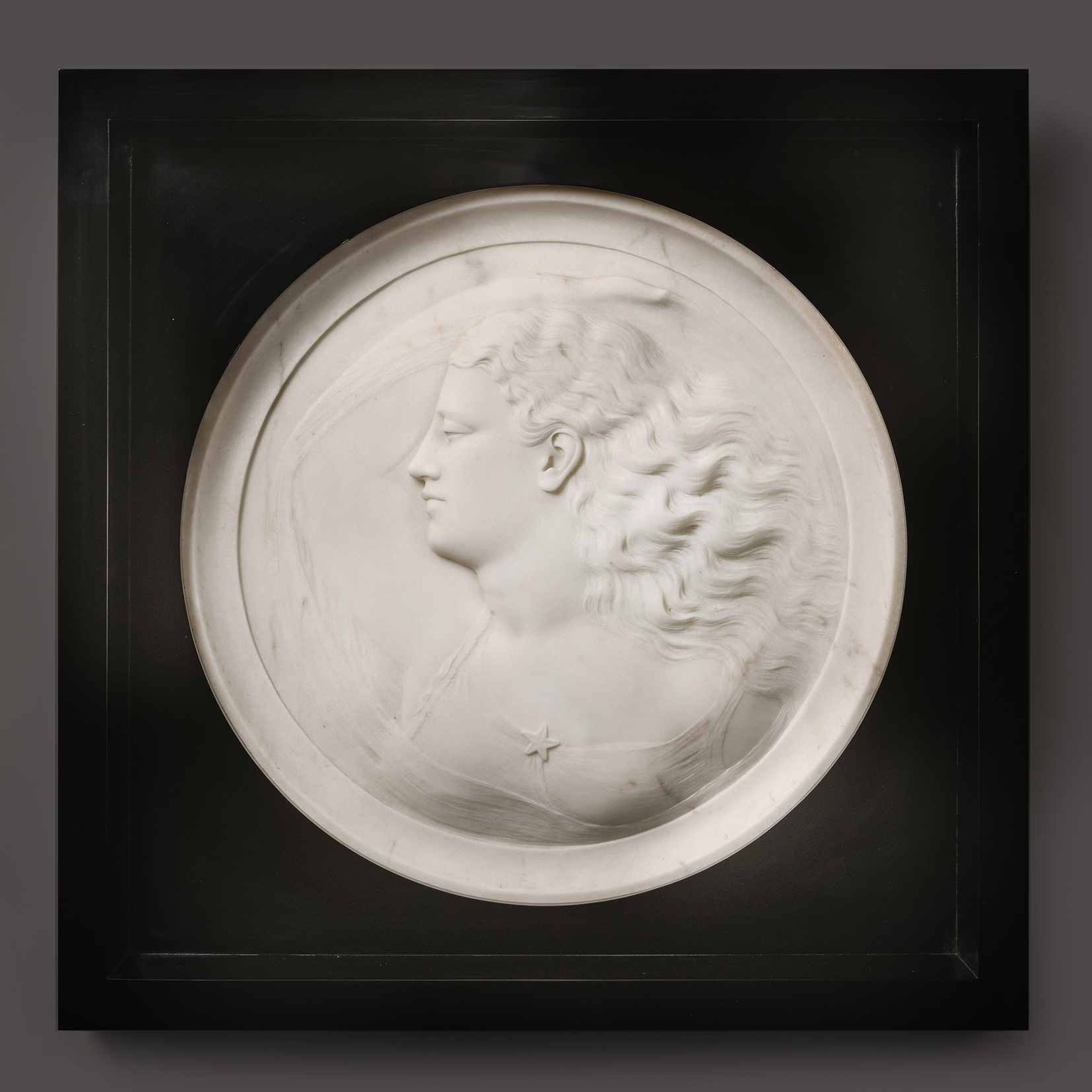
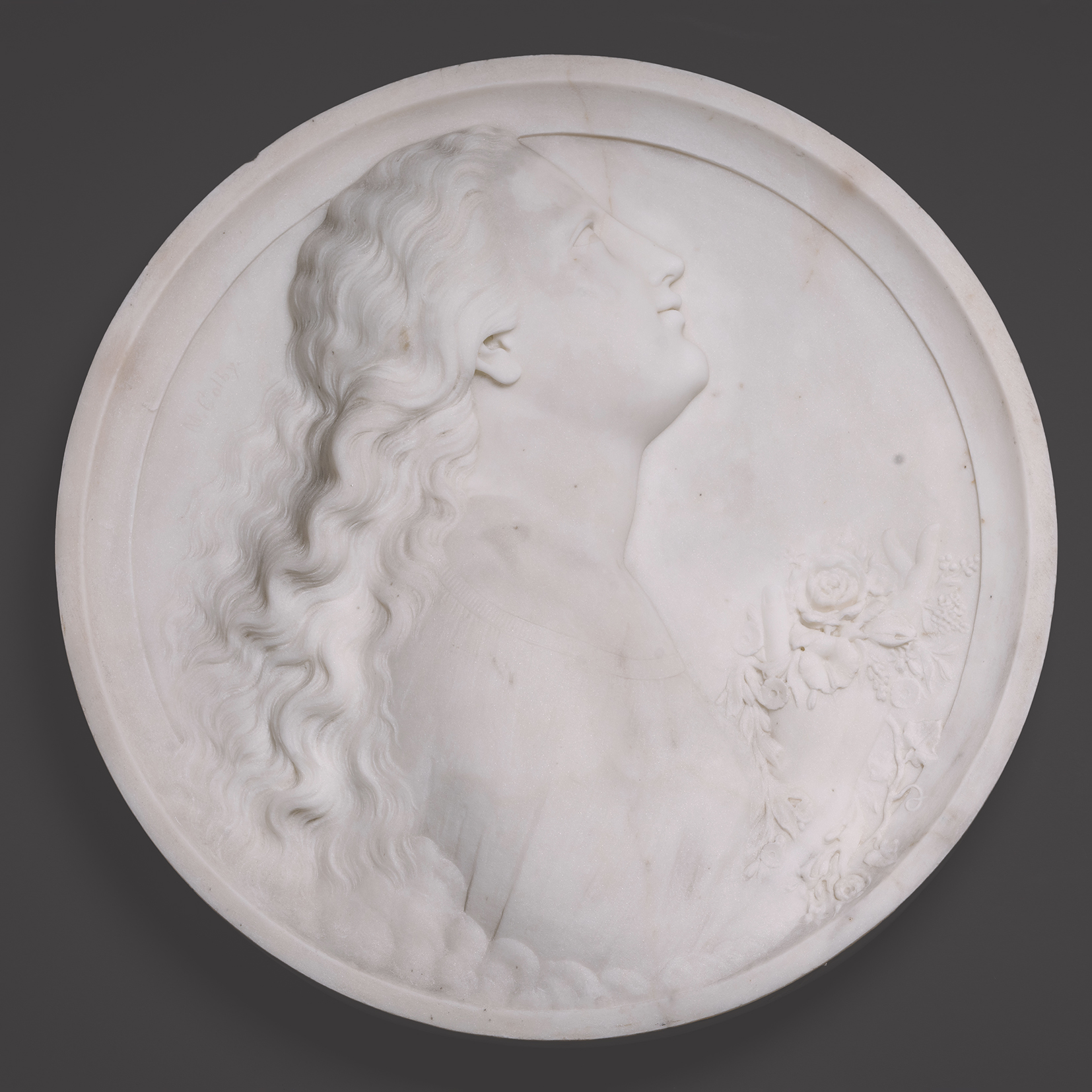
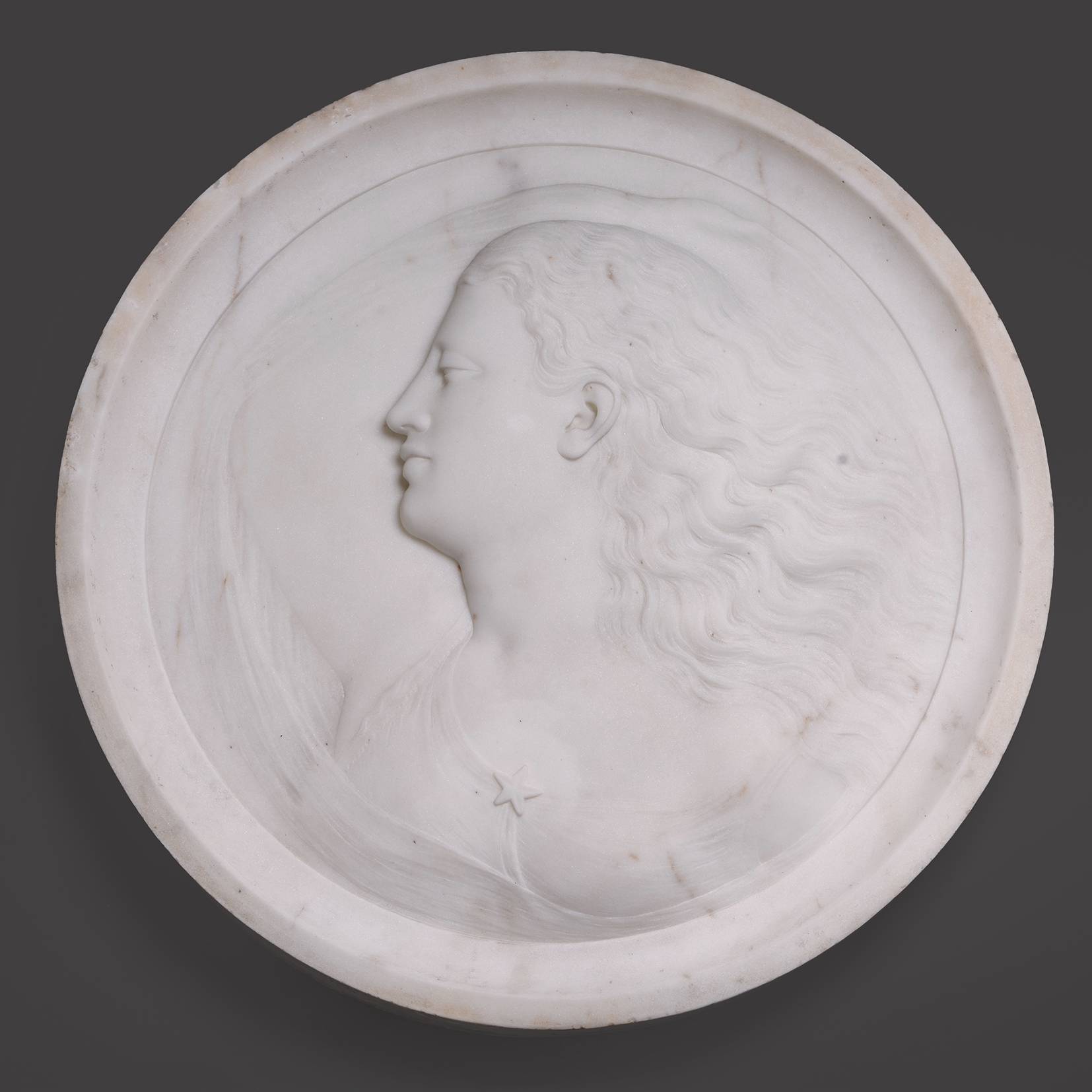
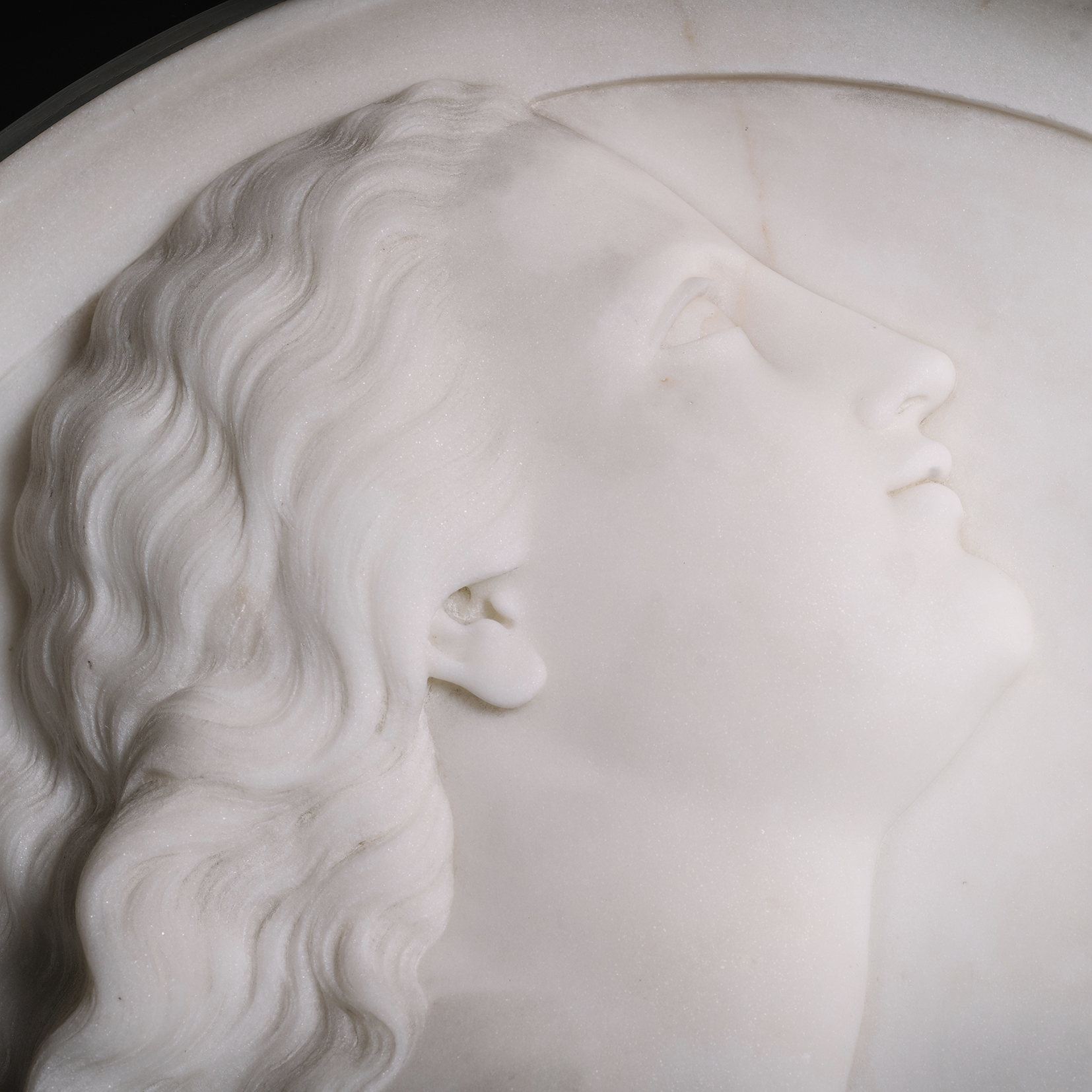
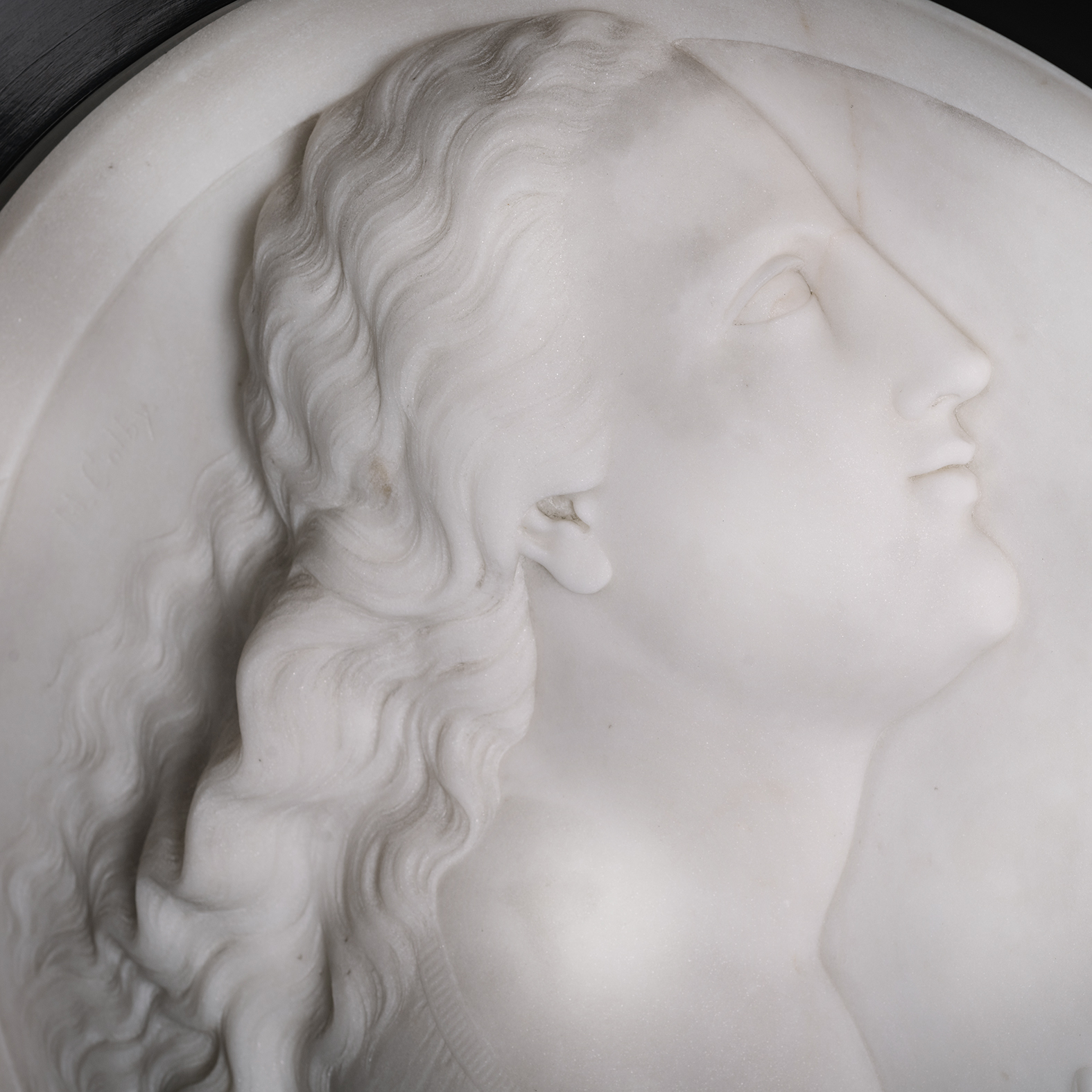
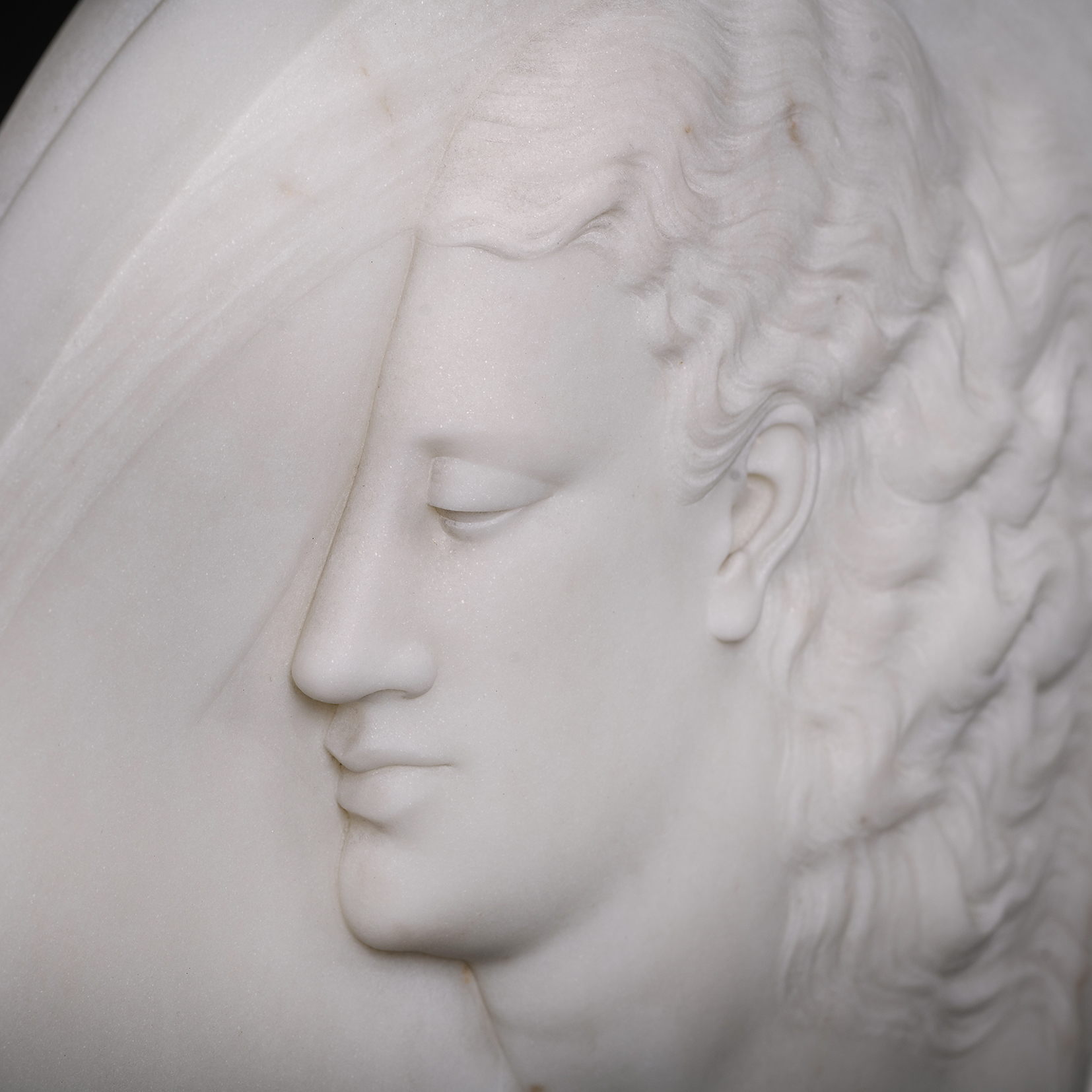
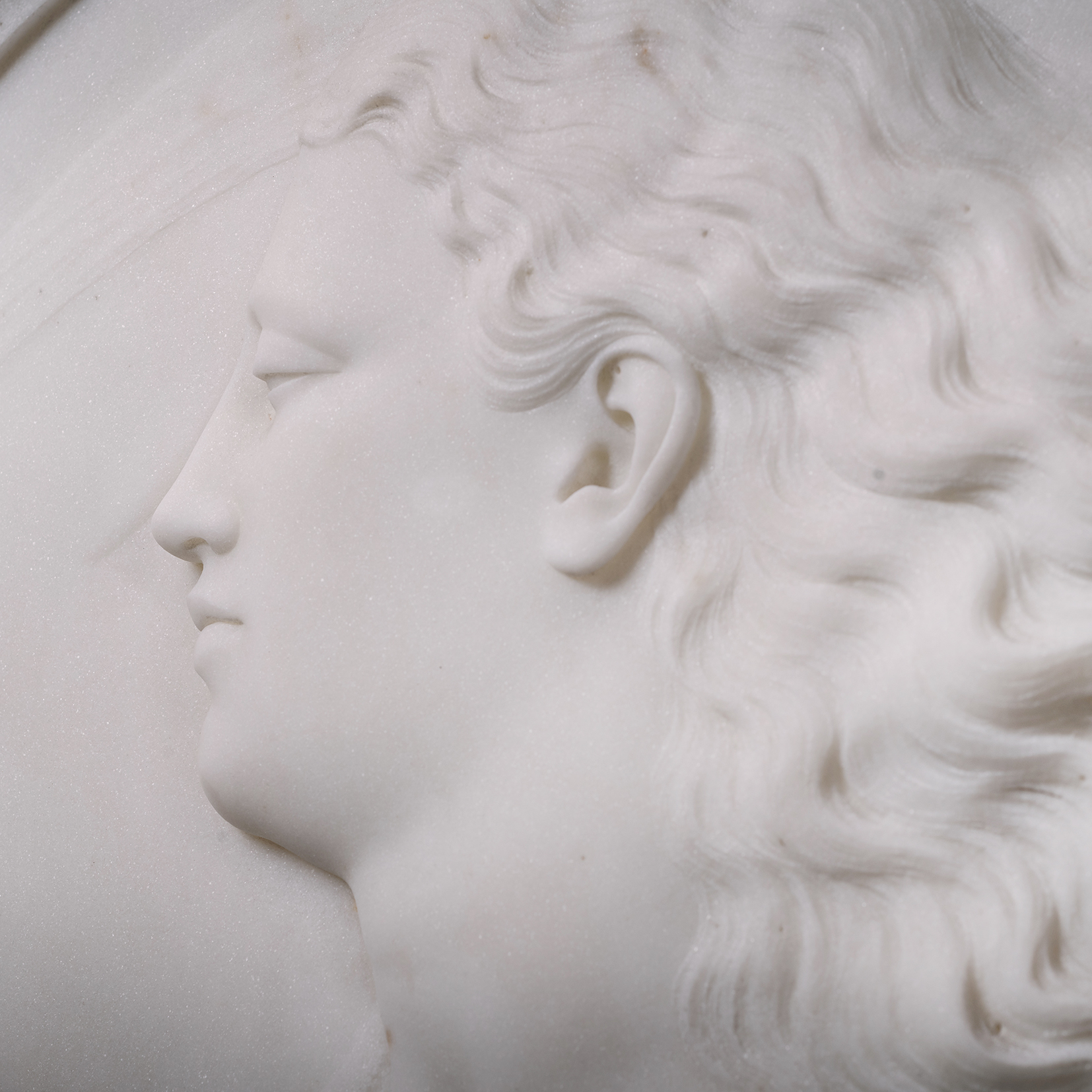
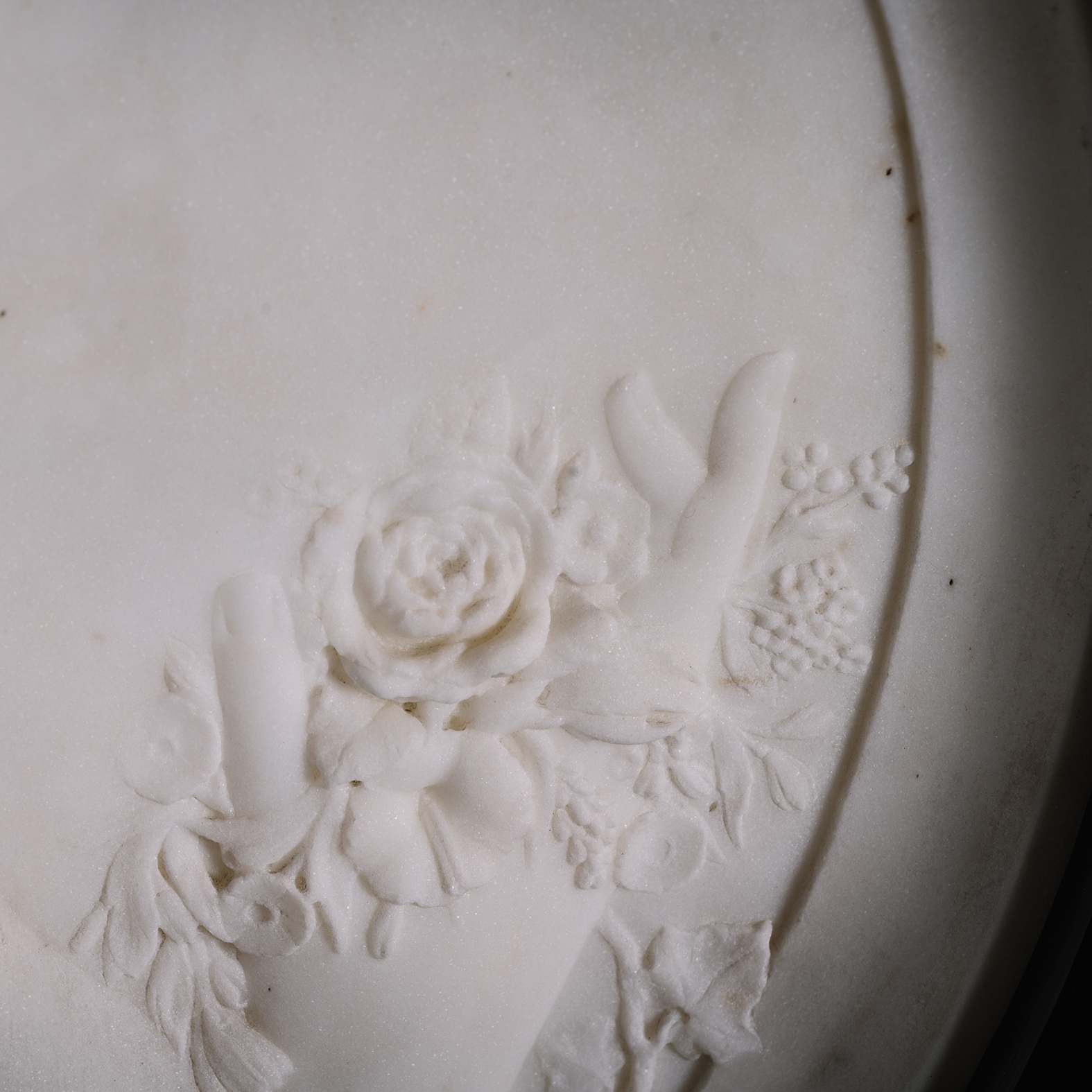
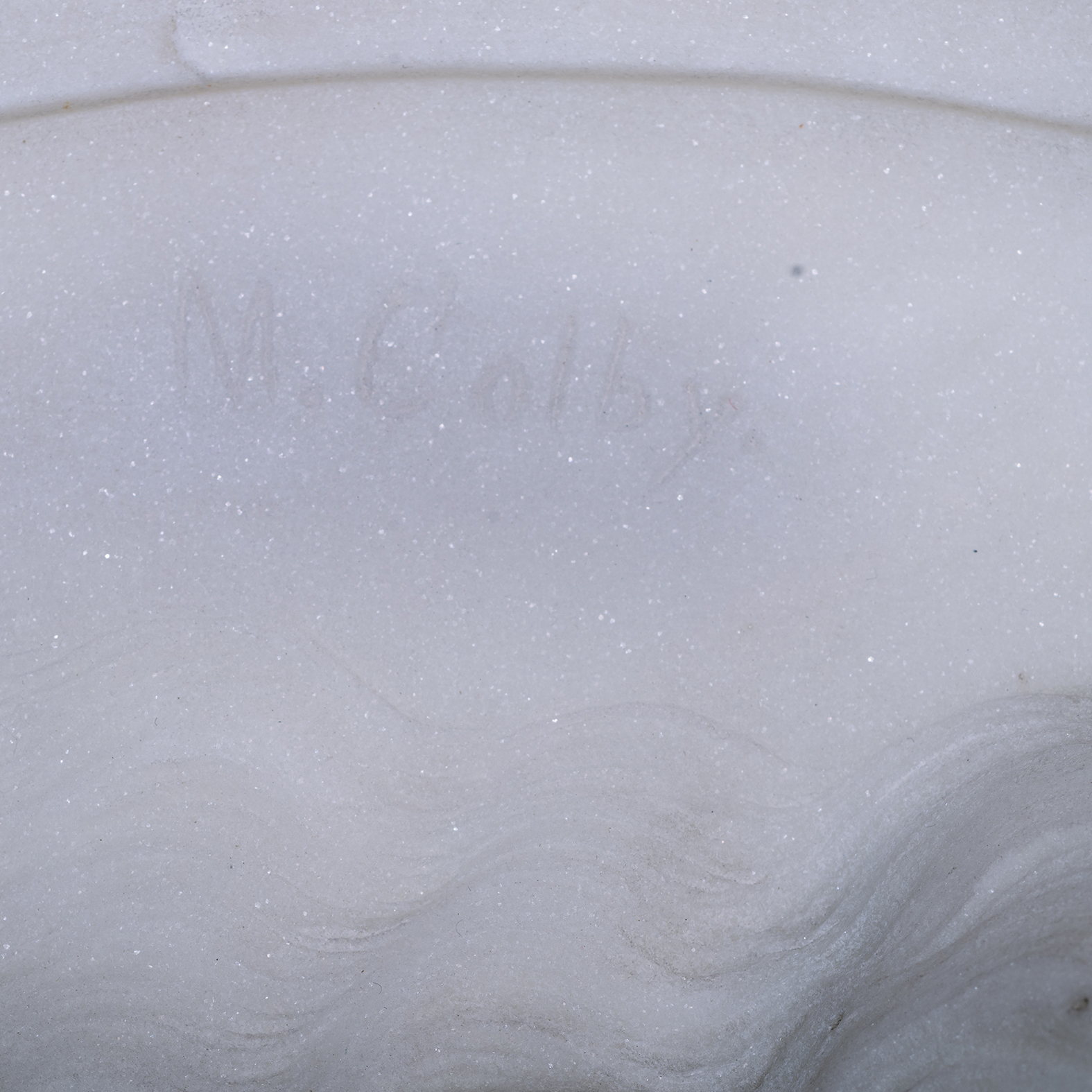

 Print
Print